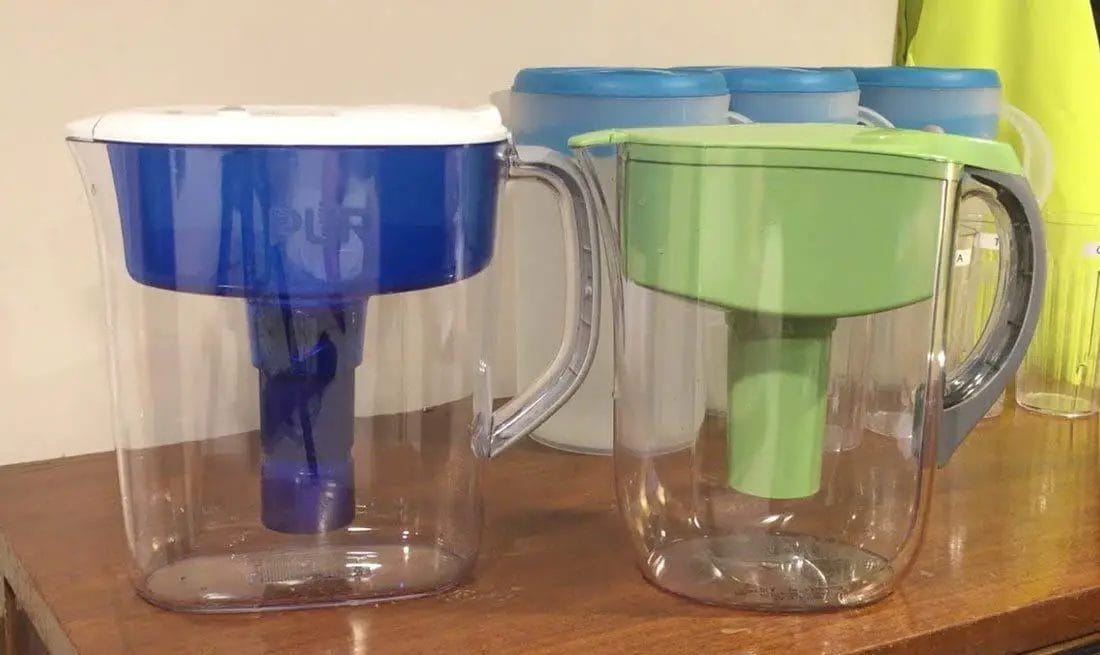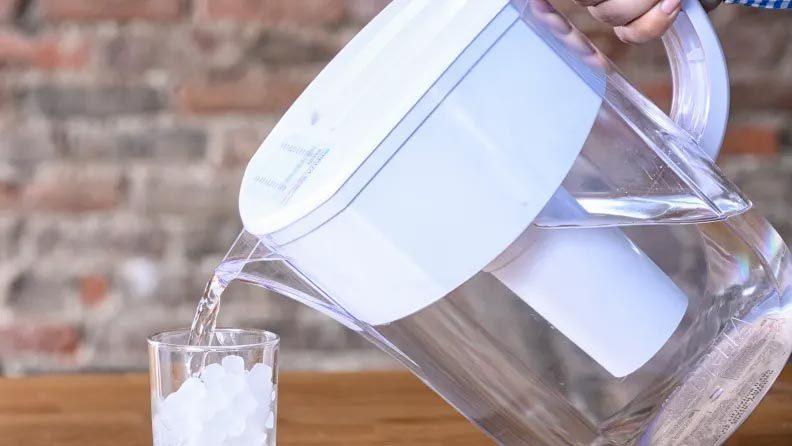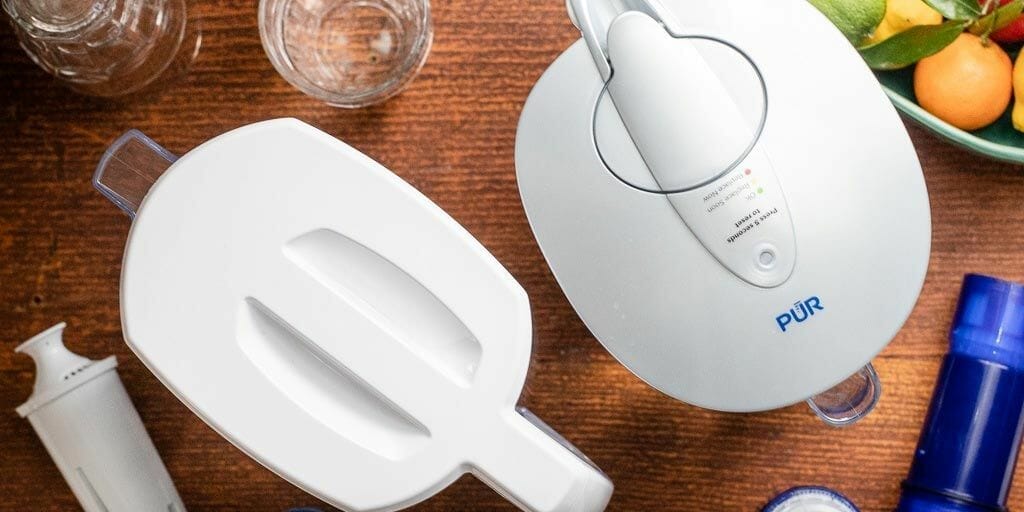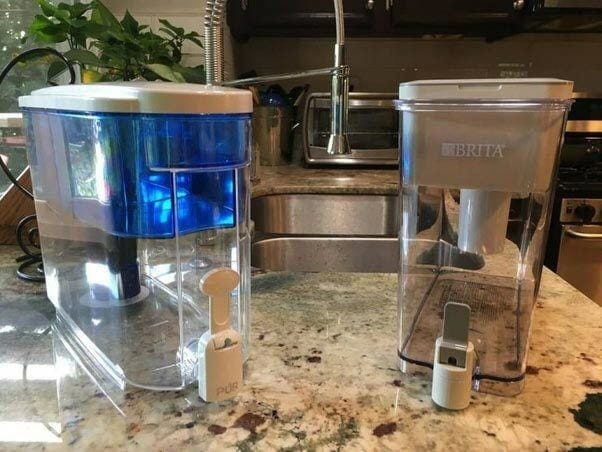There is a big debate about Pur vs. Brita water filters. Everywhere now, the need for water available for drinking is no longer an extra step. Many families buy clean water in gallons or bottles to be harmless. Whereas some families create drinking water in their homes.
If you like to make your drinking water at home, which water filter or distiller brand will you depend on? In this article, Brita Vs Pur assessment may help you out.
Throughout this assessment, we will focus on the filtration system. We will review the features and overall performance of both purifiers, PUR and Brita. They are the two most popular brands available on the market.
PUR vs. Brita Comparison Chart
| Feature | PUR | Brita |
|---|---|---|
| Filtration Technology | Maxion technology with a blend of activated carbon and ion-exchange resin | Activated carbon and ion-exchange resin |
| Filtration Capacity | Varies by model, typically ranges from 40 to 120 gallons | Varies by model, typically ranges from 40 to 120 gallons |
| Filter Replacement | Indicator for filter replacement | Indicator for filter replacement |
| Filter Lifespan | Typically 2-3 months, may vary based on usage | Typically 2-3 months, may vary based on usage |
| Removes Contaminants | Removes contaminants such as chlorine, lead, mercury, and microbial cysts | Removes contaminants such as chlorine, lead, mercury, and microbial cysts |
| Filter Options | Offers various filter options, including basic, advanced, and lead reduction filters | Offers various filter options, including standard, long-lasting, and specialized filters |
| Pitcher and Dispenser | Offers pitchers, faucet mounts, and dispenser systems | Offers pitchers, faucet mounts, and dispenser systems |
| Compatibility | Filters are typically designed for specific PUR products | Filters are typically designed for specific Brita products |
| Pricing | Filter replacement costs may vary depending on the model and filter type | Filter replacement costs may vary depending on the model and filter type |
| Warranty | Comes with a limited warranty | Comes with a limited warranty |
| Sustainability | Some models offer recyclable filter cartridges | Some models offer recyclable filter cartridges |
| Taste and Odor | Improves taste and removes odors from water | Improves taste and removes odors from water |
| NSF Certification | NSF/ANSI Standard 42 and 53 certified for contaminant removal | NSF/ANSI Standard 42 and 53 certified for contaminant removal |

What Both Brands Offer
A variety of products and models are in the market from both PUR and Brita brands. PUR has products with faucet purification systems, pitchers and dispensers, and replaceable filters. Similarly, Brita sells dispensers, pitchers, bottles, mounts for faucets, and even replaceable filters. Here are some features the two brands offer.
Efficiency
Both companies offer filtration pitchers that are widely common among customers. It is essential to discuss the efficiency of PUR water filter vs Brita.

PUR provides the “Classic” pitcher that can carry water up to six cups of water. There is an “Ultimate” pitcher, which can carry more than 10 cups of water.The “Dispenser” is the biggest pitcher the brand offers, which can hold a maximum of 18 cups of water.
Yet, Brita’s “Mini” pitcher can carry water a maximum of six cups. Like the PUR, the “Big” one from Brita can measure up to 10 cups precisely. The “Dispensers” is the biggest size that can hold water exactly like PUR, up to 18 cups.
Design and durability
Many customers prefer the design and durability of water purifiers. PUR’s dispensers have a strong edge finish design. It’s smaller in size. So it is easier for it to fit in a refrigerator. Without having so much space, you can feasibly store it.
Besides, the design of its faucet works best to prevent leakage. It is a major problem with Brita dispensers as customers complain about unnecessary leakage. In the battle of PUR vs Brita faucet filter, PUR wins here. Again, holding a water pitcher must be comfortable and not slip-free. It also should be convenient to pour. Otherwise, there is no point in using a water pitcher.
Indicators for Filter Replacement
Both brands offer a feature of indicators in case of product replacement. Replacing filters is important when necessary. Using the same screen for too long can knock down its function.

The PUR pitchers have a light indicator that shows when the filter needs replacement. The Brita has a label on it, which also explains when to replace.
Filtration Method
The filtration system is an excellent basis for comparison between these two brands. The phases are slightly different from each other.
Filters from Brita use a two-stage process for filtration. Initially, the water separates from its organic matter while moving through a filter. Next, the water gets cleaner when passing over the activated carbon. The activated carbon removes heavy metals from water. It results in better flavor and odor-free water. The method of purification of PUR filters is nearly identical.
Eliminating Contaminants
Brita and PUR’s standard water filters can dispose of the many pollutants. Some of them are Mercury, Cadmium, Chlorine, Zinc, and Copper. Also, the PUR filters can eliminate parasites, industrial pollutants, sediments, pharmaceuticals, and herbicides.
Standard Brita filters do not mention any information about their usefulness in filtering herbicides, industrial contaminants, pharmaceuticals, or sediments.
Also Learn: Where Is The Pur Water Filter Reset Button
Which filter removes more impurities?
NSF evaluates lots of products. They also have done a lot of research on Pur and Brita filters. They found that both of them are equally effective, though Pur has a bit more.

Pur can filter 97% of chlorine, and Brita can 94%. Pur can remove 97%, and Brita can filter 95% in the lead removal area. 2 or 3 percent is not considerable, but on the water contamination, the percentage is not insignificant.
For considering water contamination this amount of lead is very great. Any amount of lead is harmful for a health issue.
How the PUR water filter works
- Removal of poisonous substances from utilizing this water filter is thought to happen in two phases: At the first phase, the activated carbon filter from the water filtermanages chlorine odor and flavor, chlorination and its by-products, agricultural and industrial pollutants along with some other remaining sediments.
- During the next phase, distinctive pleating eliminates about 99.9percent of bacterial cysts. The fluoride present in the water isn’t removed since it’s beneficial for good health.
How the Brita Water Filter works
- The Brita filter cuts the flavor and odor of chlorine in the water, together with impurities like aluminum, cadmium, and mercury. The large water filter is usually changed after using 40 gallons or generally following two weeks. When the digital filter switch blinks, now it is time to switch the filter.
- Shifting the filter is quite simple and can be performed as follows. Stir it with cold water, put it in a reservoir, and then discard the first three batches of filtered water since they might contain carbon monoxide.
Pur vs. Brita – Which Filter is Cheaper?
The price of Brita and Pur is similar in the longest sense. If you consider it accurately, you will find the Pur a little cheaper. The replacement will take a similar price. When you consider the apparent superiority of the Pur product, you will get they are more expensive. This is not the factor.
We have used both products of the companies in the past. We have got that the Pur water filtration system is more durable, better designed, and better performing.
The prices of both products are the same, so it’s simple to make decisions. If you are very serious and would like to get something more substantial, you will buy a pitcher filter.
If You are looking for an affordable option or easy option then we suggest you buy a Pur dispenser. The filter is simple to maintain and very affordable. The system would not take up a lot of space.
Frequently Asked Questions
1: What is the difference between Pur and Brita water filters?
2: Which brand offers a better filtration system?
3: Are there any differences in filter lifespan?
4: Do Pur and Brita filters remove fluoride from water?
5: How do Pur and Brita compare in terms of cost?
Conclusion
Both Pur and Brita water filters offer effective solutions for improving tap water quality. While Pur filters are known for their comprehensive contaminant reduction and higher water flow rate, Brita filters focus on enhancing taste and odor by reducing chlorine and sediment. Consider your specific filtration needs and priorities when choosing between brands.
Sarah J. Gregory
352 Hershell Hollow Road
Anaheim, CA 92805






